Đái tháo đường đang có xu hướng gia tăng đáng báo động tại các quốc gia có thu nhập trung bình và thấp, trong đó có Việt Nam.
Để quản lý hiệu quả bệnh lý này, người bệnh cần có một phác đồ điều trị toàn diện bao gồm chế độ ăn uống hợp lý, vận động thể chất đều đặn, sử dụng thuốc theo chỉ định, và các kỹ năng tự chăm sóc như tự đo đường huyết và tiêm insulin. Đặc biệt, sự hỗ trợ về mặt tinh thần từ gia đình và cộng đồng cũng là yếu tố quan trọng giúp người bệnh giảm thiểu căng thẳng và lo âu, từ đó duy trì sức khỏe bền vững.

Chương trình tư vấn áp dụng công nghệ tiên tiến trong quản lý đái tháo đường
Vừa qua, Bệnh viện Đại học Y Dược TP.Hồ Chí Minh (BV ĐHYD TP.HCM) phối hợp cùng Công ty TNHH Embecta Việt Nam và Công ty Abbott Việt Nam và đã tổ chức chương trình tư vấn trực tuyến với chủ đề "Áp dụng công nghệ tiên tiến trong quản lý đái tháo đường: Chăm sóc sức khỏe toàn diện và tinh thần vững vàng", mang đến những kiến thức chuyên sâu, thiết thực giúp người bệnh đái tháo đường có phương pháp chăm sóc toàn diện, theo dõi tại:
https://bit.ly/Congnghetrongquanlydaithaoduong
ThS-BS Nguyễn Minh Mẫn, Trưởng Đơn vị Tâm lý lâm sàng BV ĐHYD TP.HCM, nhấn mạnh tầm quan trọng của chăm sóc sức khỏe tinh thần cho người bệnh đái tháo đường. Căn bệnh này không chỉ ảnh hưởng đến thể chất mà còn tạo ra nhiều áp lực tâm lý nặng nề. Người bệnh thường xuyên đối mặt với nỗi lo biến chứng, căng thẳng trong việc duy trì quản lý bệnh hàng ngày và áp lực tài chính. Nhiều người bệnh thậm chí cảm thấy cô đơn, tự ti và có nguy cơ mắc các rối loạn tâm lý như lo âu và trầm cảm.
Để hỗ trợ người bệnh vượt qua những khó khăn tâm lý, ThS-BS Nguyễn Minh Mẫn đề xuất các biện pháp can thiệp toàn diện như trị liệu tâm lý cá nhân, tư vấn nhóm, và giáo dục về kỹ năng quản lý căng thẳng. Những biện pháp này không chỉ giúp người bệnh nâng cao nhận thức về tình trạng sức khỏe mà còn giúp người bệnh duy trì một tinh thần tích cực, sẵn sàng đối mặt và vượt qua các thách thức trong cuộc sống.
TS-BS Trần Viết Thắng, Phó trưởng khoa Nội tiết, tập trung vào việc hướng dẫn kỹ thuật tự tiêm insulin, một bước quan trọng trong chăm sóc người bệnh đái tháo đường. Để việc tiêm insulin đạt hiệu quả tối đa, người bệnh cần tuân thủ các bước:
- Chuẩn bị kỹ trước khi tiêm: Kiểm tra đúng tên và liều insulin, làm ấm và đồng nhất insulin, sát khuẩn kỹ vùng tiêm.
- Thực hiện đúng kỹ thuật tiêm: Sử dụng loại kim phù hợp, gắn và tháo kim đúng cách; chọn vị trí tiêm thích hợp như bụng, đùi hoặc cánh tay, và luân chuyển vị trí tiêm thường xuyên để tránh tình trạng loạn dưỡng mỡ dưới da. Sau khi tiêm, cần giữ kim trong 10 giây để insulin vào cơ thể đầy đủ.
- Bảo quản insulin đúng cách: Insulin chưa mở cần bảo quản trong ngăn mát tủ lạnh, trong khi insulin đã mở có thể bảo quản ở nhiệt độ phòng trong vòng 4-6 tuần, tránh ánh nắng trực tiếp và nhiệt độ cao.

PGS-TS-BS Trần Quang Nam thăm khám cho người bệnh
TS-BS Trần Viết Thắng cũng cảnh báo các lỗi thường gặp như không đồng nhất insulin trước khi tiêm, tái sử dụng kim, không luân chuyển vị trí tiêm, và không giữ kim sau tiêm. Những sai sót này có thể dẫn đến việc mất insulin, kiểm soát đường huyết kém và gây đau đớn cho người bệnh. Bác sĩ nhấn mạnh, việc thực hành đúng kỹ thuật tiêm không chỉ giúp người bệnh vượt qua nỗi sợ tiêm mà còn đảm bảo hiệu quả điều trị, giảm thiểu nguy cơ biến chứng.
Cô N.T.N, 30 tuổi, nhà ở Vĩnh Long, bị bệnh đái tháo đường loại 1 từ trên 10 năm, đang được tiêm insulin nhiều lần trong ngày, tuy nhiên đường huyết dao động nhiều từ 60 mg/dL tới hơn 300mg/dL. Những năm gần đây, người bệnh thường xuyên phải nhập viện vì các đợt hạ đường huyết nặng gây rối loạn ý thức, và khoảng 5 đợt nhập viện vì hôn mê tăng đường huyết nhiễm axít ceton. Khi nhập viện vào khoa Nội tiết BV ĐHYD TP.HCM, người bệnh được bác sĩ và điều dưỡng khoa Nội tiết tư vấn tích cực về chế độ ăn và cách tiêm đúng insulin và cách tự xử trí những cơn tăng hạ đường huyết.
Ngoài ra, người bệnh được gắn công cụ theo dõi đường liên tục để bác sĩ và điều dưỡng có thể hỗ trợ từ xa khi người bệnh ở nhà. Sau vài tháng, tình trạng đường huyết ổn định hơn, giảm cơn hạ đường huyết. Sau thời gian điều trị, người bệnh không phải nhập viện vì hôn mê tăng đường huyết, trở lại cuộc sống sinh hoạt ổn định, cảm thấy thoải mái, giảm căng thẳng trong cuộc sống.
PGS-TS-BS Trần Quang Nam, Trưởng khoa Nội tiết BV ĐHYD TP.HCM, nhấn mạnh thêm về lợi ích mà công nghệ tiên tiến mang lại trong hành trình quản lý đái tháo đường. Hệ thống theo dõi đường huyết liên tục (CGM) là một công cụ quan trọng giúp người bệnh kiểm soát đường huyết liên tục mà không cần phải trích máu từ đầu ngón tay, từ đó hỗ trợ bác sĩ và người bệnh điều chỉnh phác đồ điều trị kịp thời. Cùng với đó, ứng dụng di động UMC Care của BV ĐHYD TP.HCM tích hợp nhiều tính năng hỗ trợ người bệnh như nhắc lịch uống thuốc, cập nhật các chỉ số và lưu trữ hồ sơ sức khoẻ, giúp người bệnh và bác sĩ dễ dàng theo dõi tình trạng và điều chỉnh điều trị hiệu quả.
Sắp tới, vào 8 giờ 30 ngày thứ bảy 23.11.2024, BV ĐHYD TP.HCM phối hợp cùng Công ty TNHH Embecta Việt Nam và Công ty Abbott Việt Nam tổ chức chương trình tư vấn trực tiếp miễn phí về bệnh đái tháo đường tại BV ĐHYD TP.HCM dành cho 100 người bệnh đăng ký sớm nhất qua điện thoại 028 3952 5354.
Nguồn: https://thanhnien.vn/ung-dung-cong-nghe-tien-tien-trong-quan-ly-dai-thao-duong-185241110124951936.htm












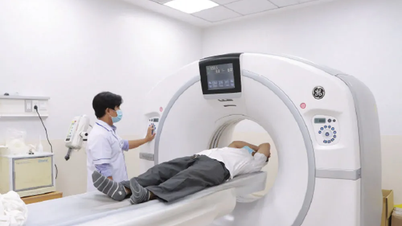





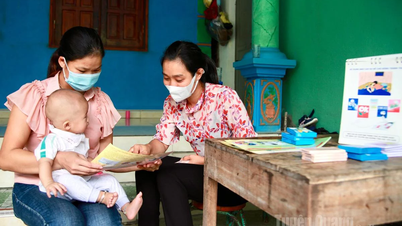







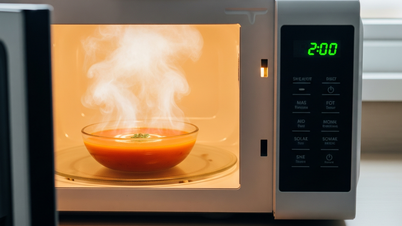
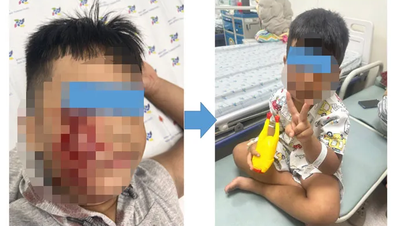




































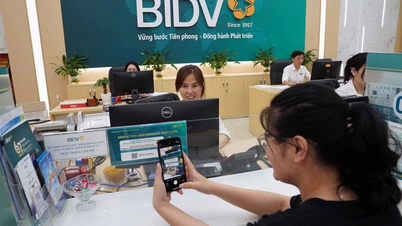











































Bình luận (0)